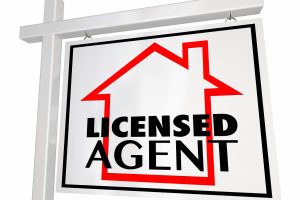As a green frog puppet once said “It ain’t easy being green.” But in real estate, it’s easier than you may think.
This year, the state of Minnesota has made energy efficiency a mandatory topic. In the course called “Agency, fair housing and energy efficiency,” students will learn about agency Law, its history, foundation, and Minnesota License laws regarding agency relationships in a real estate transaction. This course will also look at federal Fair Housing law, its history, laws, and regulations. Prohibitions under the federal Fair Housing Act and the Minnesota Human Rights Act will be covered.
The energy efficiency portion of the course will cover the importance of home energy assessments in existing homes and an overview of the Minnesota market for energy efficiency in new homes and building codes. It will also cover the need and importance of a pre-construction HERS report and provide resources for more information.
An important question that agents will ask is “Why does energy efficiency matter?” The answers are profound. Instead of buying a property with $200/month budget for gas and electric, why not look at an energy efficient house where the monthly bills are $120/month. That extra $80 and design can do several things for the average homebuyer. Imagine applying that extra $80 toward the principal of your loan. A lender could extend their lending power to the buyer and approve them for a higher loan. There are numerous possibilities.
Frequently, agents will ask “What makes a home green?” By using reclaimed and reused material that are still purposeful, we are not using more natural resources to build. By framing a wall 24” on-center versus 16,” a builder would be using less lumber. Photovoltaic panels, wind turbines, solar water heating and other technologies are making significant advances in their use for homes.
When doing a home energy assessment for existing homes, a homeowner can discover the air leakages, heat loss and more to be able to remedy the problems and thereby save money. RESNET inspectors perform investigations to determine the HERS score (Home Energy Rating System). The homeowner can obtain low interest rate loans to perform work that will make the property more energy efficient.
In an age where heating, cooling and electric costs continue to rise, a prudent homeowner would want to make sure there is no waste. These audits prove useful in reducing costs.
This course exposes licensees to the basics of energy efficiency and allows the agent to begin to discover resources available for their clients. While climate change and energy costs change, so should the licensee’s knowledge about such important matters impacting real estate.
We won’t be planting lemon trees in the Boundary Waters Canoe Area anytime soon. But we are seeing seed catalogs changing their ‘planting zones’, the Navy is concerned about the loss of the Norfolk Virginia Dry Docks due to the rising ocean levels and the country of Indonesia is moving its’ capital to Borneo (due to Ja karta sinking into the ocean). These changes can be devastating and/or impact housing costs greatly. Mike Brennan







